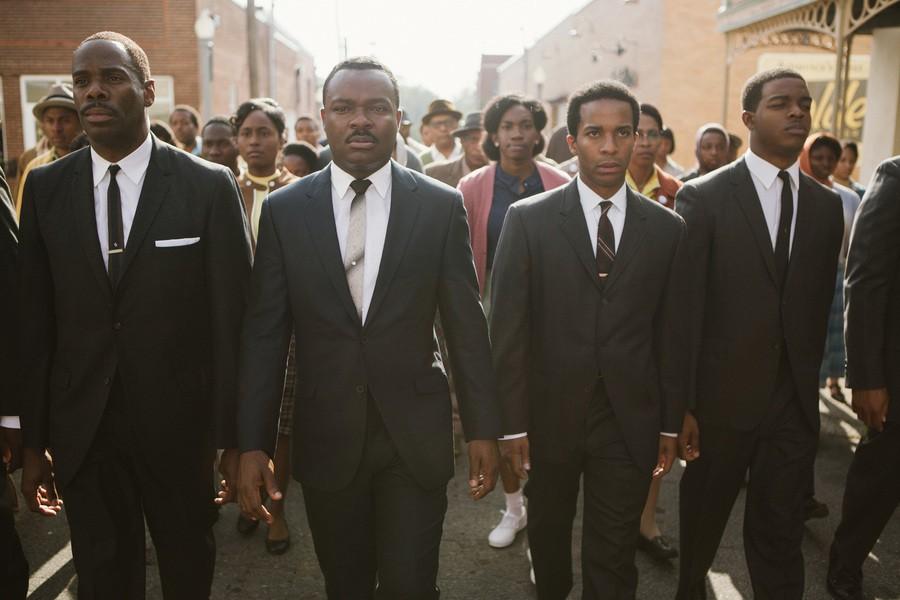Selma combines high drama and history – entertainment and education
Atsushi Nishijima/Paramount Pictures. Courtesy of MCT Campus.
From left, Colman Domingo plays Ralph Abernathy, David Oyelowo plays Dr. Martin Luther King, Jr., Andre Holland plays Andrew Young, and Stephan James plays John Lewis in “Selma” from Paramount Pictures, Pathe, and Harpo Films.
January 18, 2015
The new film Selma, directed by Ava DuVernay, follows Martin Luther King, Jr. and other civil rights leaders as they organize the historic march across Alabama in March of 1965 to fight for voting rights.
I love history and have focused study on the 1960’s, especially President Lyndon B. Johnson. Most of what Selma covers was familiar to me, and overall it was an interesting movie, with a few historical inaccuracies.
David Oyelowo plays the starring role as Dr. Martin Luther King, Jr. One of the film’s major goals was to portray King in a more personal way, and Oyelowo was a perfect fit. Without losing any of King’s charisma and gravitas as a leader, Oyelowo was able to effectively bring to life the personality and private life of the civil rights icon.
The story flows from King’s personal life to the struggles of organizing the march and obtaining federal protection along their route. A central figure to the plot is President Lyndon B. Johnson, played by Tom Wilkinson, who meets with King on many occasions to discuss the march and voting rights legislation.
There has been much criticism over a few historical aspects of the film, including the relationship between MLK and President Johnson, and the FBI’s surveillance of the King family.
Mark Updegrove, Director of the LBJ Library, has argued that unlike the “contentious” relationship depicted in the film, “the partnership between LBJ and MLK on civil rights is one of the most productive and consequential in American history.” Others have said that Johnson was portrayed as hesitant to the civil rights movement to create a more dramatic storyline.
The criticism is fair and points out a key problem common among historical films. Are filmmakers willing to trade historical credibility for heightened drama, or should they stick to the facts? In cases like Selma, I think the real event was monumental enough and didn’t need any fictionalized tension added to it.
Regardless of any historical inaccuracies, the main focus of the film is on King and the historic Selma march, and those have been portrayed in a powerful way. DuVernay has brought Selma, Alabama to the nation’s attention for the second time in history, and with dramatic and memorable scenes depicting both the violent losses and the triumphs of the movement, Selma is sure to become an important film about the fight for civil rights.
“Selma” has already won a Golden Globe award for best original song (“Glory” by John Legend and Common) and has been nominated for two Oscars, including Best Picture and Best Original Song.
Get to the theatre and see it soon.



